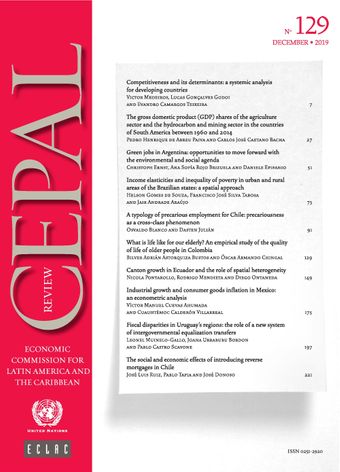-
Industrial growth and consumer goods inflation in Mexico: An econometric analysis
- Source: CEPAL Review, Volume 2019, Issue 129, 12月 2019, p. 175 - 196
- スペイン語
-
- 20 5月 2020
Abstract
This paper employs a vector error correction methodology to investigate the long-term determinants of consumer goods inflation and industrial growth in Mexico during the 20012016 period. This is underpinned by a aggregate demand-aggregate supply model that brings new explanatory variables into play and keeps a priori restrictions on the data to a minimum. The evidence shows that cost-push and demand-pull inflation are both present and reveals the variables at work in each case. This study fills a gap in the empirical literature by showing that labour productivity not only spurs industrial growth, but also lowers consumer goods inflation in the long run. The policy implication of this finding is important given the need to attain faster economic growth without sacrificing price stability.




